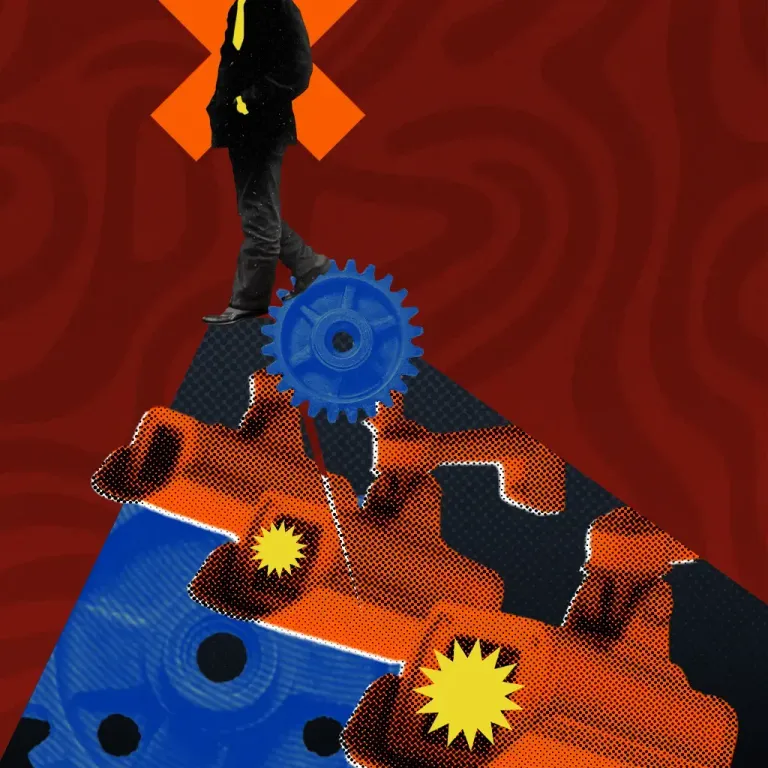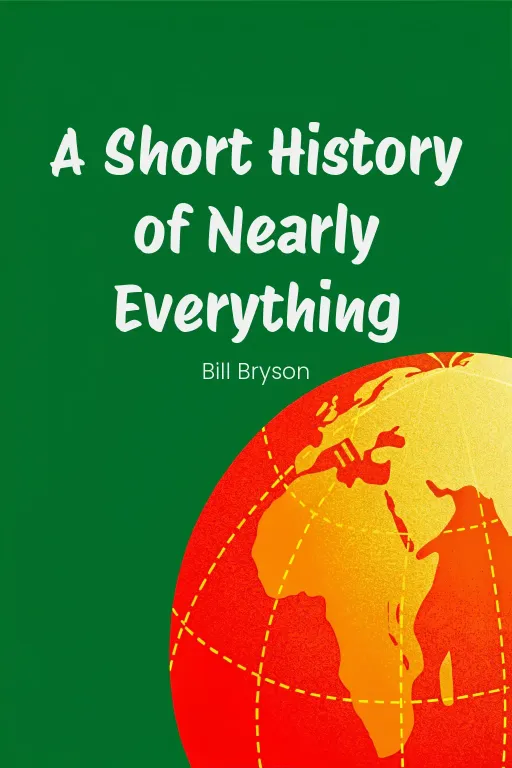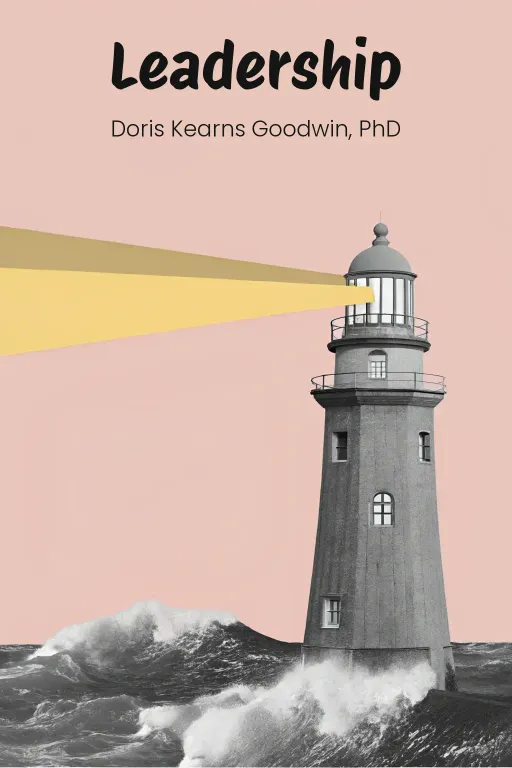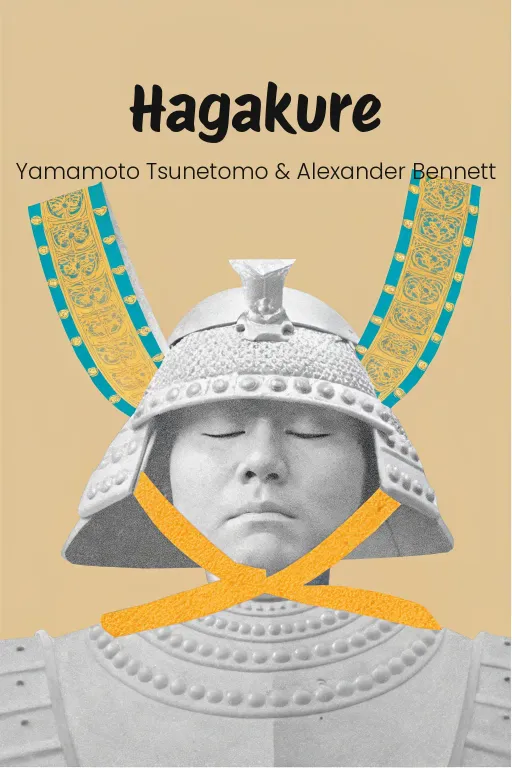
Freedom's Edge: How Societies Unravel?
Podcast by Civics Decoded with Thomas and Grace
Introduction
Part 1
Thomas: Hey everyone, welcome back! Today we’re tackling Hannah Arendt’s “The Origins of Totalitarianism”. It’s a massive work, but honestly, it's more than just a history lesson. It’s a deep dive into how societies fall apart and how oppressive regimes actually gain power. Grace: “The Origins of Totalitarianism”... Yes, that old chestnut. So, basically, we're discussing how freedom dies. Cheerful stuff indeed! Thomas: Well, the thing is, Arendt doesn’t just lay out what happened, she really digs into why. She connects the dots between seemingly different things, like the rise of antisemitism as a political tool, the global impact of imperialism, and the really disturbing efficiency of totalitarian states. She shows how these forces can build towards societal disaster. Grace: So, if I’m hearing you right, Arendt essentially looked at humanity’s greatest hits of terrible decisions and said, "Here's the instruction manual for how to screw it all up." Thomas: Almost exactly. And that's what we're exploring today, focusing on three key areas of her analysis. First, we'll look at how antisemitism transformed from just prejudice into a political weapon. Then, we’ll examine how imperialism’s drive for domination reshaped the world and paved the way for totalitarian ideologies. And finally, we'll discuss the terrifying ways these regimes crush individuality in order to maintain total control. Grace: Okay, so we’ve got weaponized prejudice, colonialism running wild, and large-scale oppression. Quite the recipe for disaster, wouldn’t you say? So where exactly do we want to begin this journey into darkness?
Antisemitism as a Political Tool
Part 2
Thomas: So, let's talk about antisemitism as a political tool. Arendt argues that antisemitism didn’t just pop up out of nowhere. It evolved over time, morphing to fit the cultural and political climates wherever it took root. Initially, it was religious prejudice, this idea of Jews as theological enemies. But the real game-changer came with Europe's modernization and the rise of nation-states in the 19th century. Grace: Right, which is when being Jewish wasn’t just about faith anymore. It got all tangled up with politics, economics—and good old-fashioned fear. So, the scapegoating machine gets a serious upgrade at this point? Thomas: Precisely. The Enlightenment kind of changed everything. Jewish communities started gaining legal rights in places like France, becoming more visible in public life. This emancipation allowed them to flourish professionally, but that success, unfortunately, made them a target. They were held up as these symbols—the supposed masterminds behind financial systems, political chaos, even cultural shifts that some people felt were destabilizing society. Grace: And I'm guessing these weren’t exactly compliments, right? More like, “Look! The Jews are secretly controlling everything that’s falling apart!” Thomas: Exactly, and that’s when antisemitism really became a political weapon. Anger about economic and social issues was redirected towards Jewish communities. Political figures found an easy scapegoat to unify a divided public. And there's no better example of this than the Dreyfus Affair in France. Grace: Ah, yes, the Dreyfus Affair—where an innocent Jewish officer became the fall guy for a wobbly political system. A classic case of blaming someone else, taken to the extreme. But, Thomas, how did one man’s trial become this massive national—even international—obsession? Thomas: Well, the stakes were far greater than simply whether Alfred Dreyfus was innocent or guilty. France was struggling with a lot of internal problems at the time—industrial tensions, fears about national decline, and a military that was under pressure. Convicting Dreyfus wasn’t about justice; it was about trying to unite a fractured society. The military used antisemitism and his Jewish identity to paint him as a traitor and a symbol of Jewish deceit. The whole trial was a carefully orchestrated performance designed to stir up nationalist and antisemitic feelings. Grace: Sounds like reality TV, 19th-century style. “Is French society falling apart? Cue the Jewish officer for some good old national scapegoating!” Thomas: That’s a little too accurate, and sadly, that's true. And the nationalist newspapers, of course, played their part, publishing nasty articles about how Dreyfus was the perfect example of Jewish treachery and foreign meddling. The public ate it right up, and suddenly, nobody was talking about the real, underlying problems—they were all focused on demonizing Dreyfus and, by extension, the entire Jewish community. Grace: It’s kind of terrifying how effective all this was, right? Stir up emotions, shift the blame—it’s a tried-and-true formula. But something like this couldn’t have “really” worked if the public hadn't been willing to buy into it, could it? Thomas: Exactly. Arendt would say that the danger wasn’t just the elites who orchestrated it, but also how ordinary citizens were willing to go along with it. People accepted the narrative because it made their frustrations easier to deal with. It was easier to blame a minority group than to confront bigger, structural problems. Dreyfus’ eventual exoneration in 1906 didn’t undo the damage, unfortunately, antisemitism had already been legitimized as a powerful political tool. Grace: And let me guess—things got even darker when we get to Nazi Germany. I mean, if the Dreyfus Affair was the trial run, Hitler and the Nazis turned it into… I don’t know, an industrial-scale operation? Thomas: Precisely, Nazi propaganda took that exact tactic—scapegoating Jews—to terrifying new extremes. It wasn’t just a tool anymore. It became the central unifying ideology of the regime. Hitler didn’t invent antisemitism, but he industrialized it. The Nazis grabbed everything—economic hardship, cultural anxieties, political instability—and slapped a “It’s the Jews’ fault” label on it. Grace: And they didn’t stop at just badmouthing them. I mean, we’re talking about deeply manipulative propaganda here, from fake conspiracies like the Protocols of the Elders of Zion to those dehumanizing posters that just drilled antisemitic tropes into people’s minds every single day. Thomas: Yes, and this propaganda didn’t just stigmatize—it actually paved the way for the Holocaust. Arendt emphasizes how the Nazis combined these older antisemitic myths with pseudo-scientific racial theories to portray Jews as both a biological danger and a threat to society. This "justified" their systematic plan to isolate and wipe out Jewish communities. Grace: It's so meticulously planned. This wasn’t just some emotional mob behavior; it was deliberate, methodical, and brutally efficient. They weren’t just aiming for unity—they wanted absolute compliance, obedience... totalitarian control. Thomas: Exactly. And every piece—antisemitic propaganda, racist pseudoscience, forced isolation in ghettos—worked together to desensitize people to these unthinkable atrocities. It's chilling to see how antisemitism played both a political and an ideological role in solidifying the Nazi regime’s power. Grace: But it sounds like Arendt’s making a broader point here, that antisemitism didn’t just appear out of thin air. It’s more like a symptom of a society looking for easy answers to “really” complex problems. Leaders point the finger at a minority, create a narrative, light the fuse, and then watch as the fire unifies their people. Thomas: You’ve hit it. For Arendt, that’s the “real” danger. It’s not just about this specific prejudice. It's about the larger pattern of scapegoating. Antisemitism became the template, but the political strategy itself—blaming vulnerable groups for society's ills—can be adapted to fit any situation. And that’s “really” where the bigger warning lies.
Imperialism and Its Discontents
Part 3
Thomas: So, this weaponization of antisemitism really paved the way for some major ideological shifts, eventually setting the stage for the rise of imperialism. Arendt views imperialism as this crucial turning point where, you know, the lines between just wanting to make money and actually trying to control things politically became super blurry. And that's what ultimately created the perfect conditions for totalitarianism to take hold. Grace: Okay, so we're talking about shifting from having enemies within a country to going out and conquering the world. It's like taking all that destructive energy and just pointing it outwards, slapping some flags and maps on it, and, of course, a whole lot of exploitation, right? Thomas: Precisely. The way Arendt describes it, imperialism was really driven by the bourgeois class—your industrialists, merchants, financiers—the people who had already pretty much mastered their own economies and were now looking to expand globally. Economic borders just weren't cutting it for them anymore. They saw imperialism as the ultimate tool to get both financial and political dominance. Grace: Right, but here's what I'm wondering. Why couldn't they just, you know, stick to getting rich through trade or industry? What's the thought process that goes from, "Let's build some factories" to "Let's colonize the entire continent of Africa"? Thomas: Well, because trade and industry alone just weren't satisfying their hunger for power. Arendt argues that the economic system at the time reached a point where they just needed more markets to keep growing. But it went beyond just economics. Imperial expansion became about projecting national and racial superiority. It wasn't just about, you know, managing colonies for profit. It became about domination, for its own sake. Grace: So, imperialism wasn't just about greed; it was greed dressed up in some fancy ideology. Okay, let's talk about this really twisted paradox: Europe, the supposed, you know, birthplace of democracy, turning around and ruling over colonies with such oppression and hierarchy. Thomas: Exactly. European powers liked to justify imperialism as this "civilizing mission," claiming they were bringing progress and enlightenment to "uncivilized" peoples. But underneath that shiny veneer, it was all about exploitation. A perfect example of this duality is Cecil Rhodes, I mean, he’s practically the poster child for unbridled colonial ambition. Grace: Ah yes, Cecil Rhodes. Didn't he have some like, grandiose plan about turning the British Empire into a global monopoly? Thomas: Oh, absolutely. Rhodes “really” believed it was Britain’s divine right to control as much of the globe as possible—he even fantasized about annexing planets if it were possible. His talk about a moral obligation to spread British civilization masked his true goal: extracting resources for both his personal and national gain. For Rhodes, imperialism wasn't just a policy; it was his life’s obsession. Grace: So Rhodes wasn't happy stripping African lands of their resources; he wanted the entire cosmos. Totally reasonable. Thomas: Exactly Arendt's point. His insatiable hunger for expansion just exemplifies the irrationality at the heart of imperialism. This relentless drive for more just wasn't sustainable. I mean, it drained resources, destabilized governments, and ultimately created fractures within the imperialist nations themselves. Empires that ran on exploitation found themselves riddled with internal contradictions. Grace: And then, of course, there's the question of race. If imperialism institutionalized exploitation, it also baked in racial hierarchies as the ideological glue holding everything together, right? Thomas: Correct. Racial hierarchies became the justification for imperial governance. If colonial powers were going to dominate other people, they needed some kind of moral framework, and that's where pseudoscientific racism came in. Take British-controlled South Africa, for example. The British introduced laws and bureaucratic systems that systematically oppressed the Indigenous Black populations—everything from dispossessing them of their land to pass laws that restricted where they could go. Grace: So they create this whole story—"We're not exploiting these people; we're teaching them how to be civilized"—while they're stealing their land and labor. It's just…ugh, grotesque. Thomas: Very much so. The bureaucracies of imperialism didn't just enforce policies—they institutionalized inequality. South Africa shows us how policies, you know, laid down during British rule evolved into apartheid later. The legal and administrative tools the empire put in place—pass laws, segregated land policies—were weaponized to divide and control the population. Grace: This idea of bureaucracy being essential to, you know, controlling the colonized—it feels like a precursor to totalitarianism, where paperwork becomes a tool of oppression. That disconnect, where the system just grinds away, and people forget there are human lives being destroyed in the process. Thomas: Exactly. Arendt highlights how these imperial systems pioneered the use of bureaucracy to enforce dehumanization on a massive scale. And once these systems were in place, they didn't just disappear with the end of colonization. Those same tools and ideologies laid, you know, fertile ground for future regimes to thrive. Grace: And we can't forget how these ideas of dominance and hierarchy leaked back into Europe, shaping the political landscape in some unexpected ways. Like the emergence of pan-movements, right? Thomas: Absolutely. Pan-movements, like Pan-Germanism and Pan-Slavism, flourished during the late imperial era. Originally, they were meant to foster unity among people who shared linguistic or cultural ties. But as these movements rubbed elbows with imperialism, they became more radical and exclusionary. Pan-Germanism, for instance, shifted from celebrating German-speaking unity to justifying racial superiority and territorial expansion. It became a, you know, blueprint for Nazi ideology. Grace: And Pan-Slavism, in contrast, was about rallying Slavic peoples under a common identity, but it wasn't exactly harmless either, was it? Thomas: Not at all. Initially conceived as a counterbalance to Western European powers, Pan-Slavism was co-opted by states like the Soviet Union to further territorial ambitions and suppress dissent. Stalin, for instance, used Pan-Slavic rhetoric to both unify and dominate Eastern Europe, wrapping, you know, imperialist aggression in the banner of cultural solidarity. Grace: It's fascinating, and honestly disturbing, how quickly these calls for unity based on cultural pride can turn into tools for control. You start with a shared identity, and before you know it, you're enforcing ideological purity. Thomas: That's why Arendt sees these pan-movements as a bridge connecting imperial ambition to totalitarianism. Initially, they provided cohesion in a fragmented world. But they also opened the door for regimes to manipulate identity as a means of domination. The rhetoric of "us" versus "them," amplified by the tools of imperialism, became the foundation for the authoritarian states we saw in the 20th century. Grace: So, imperialism isn't just about distant colonies; it's a virus that spreads, mutating into totalitarianism by reshaping how we think about power, governance, and identity. It’s just a disastrous cycle. Thomas: Exactly. Imperialism didn't just exploit nations abroad; it rewrote the DNA of politics and governance. It normalized dominance, inequality, and dehumanization, making them, you know, tools that future regimes would wield with terrifying efficiency.
Totalitarianism: Mechanisms and Legacy
Part 4
Thomas: So, here's where it all really comes together. The fall of the imperial order didn't just cause political chaos. It actually opened the door for totalitarian regimes, which then took advantage of the fractured society. Arendt really goes deep on this, showing how these systems turned terror, propaganda, and mass movements into control mechanisms that basically wiped out individuality. We should really explore how these things worked and, honestly, the huge psychological and social damage they caused. Grace: Totalitarianism, it's like authoritarianism on steroids, isn't it? Authoritarian regimes just want you to obey, but totalitarian ones need you to believe. They want your soul, not just your compliance. So, uh, what's step one in setting up this soul-crushing system? Thomas: It all kicks off with ideology. Totalitarian regimes, they don't just make rules, they run based on believing in these “historical inevitabilities.” Think about the Nazis pushing for racial purity or Stalinists banging on about class struggle. These leaders convinced people that they weren’t doing terrible things, but just helping destiny along. And that’s what made disagreeing so hard: mass killings, policies, and terror were spun as steps toward this unavoidable perfect world. Grace: And that's where propaganda comes in, right? You control the story so people buy into these “inevitabilities.” But it’s not just loud speeches and parades, it's everywhere all the time. Can you give us an example of how the Nazis used it? Thomas: For the Nazis, propaganda was everywhere. Joseph Goebbels, who was in charge of propaganda, launched this massive media campaign that didn't just say Jewish people were bad for the country, but that they were bad for the world. You had movies like The Eternal Jew that showed really awful caricatures to dehumanize Jewish people. But it was also about repeating it over and over again. Every day, there were posters, radio programs, and even schoolbooks filled with lies about Jewish plots. Propaganda became a way to twist reality, making people believe the Holocaust was not only needed but, like, righteous. Grace: It’s terrifyingly effective, right? You hear lies repeated enough, and they start to feel true—or at least, inevitable. But the Nazis didn't just put it on TV or the radio; they brought it into the streets. I mean, does it get more in sync than those Nuremberg rallies? Thomas: Those rallies were carefully planned to eliminate individuality. Thousands marching, chanting together, surrounded by swastikas. They weren't just watching; they were part of it. The energy, the show of it all—it created this feeling that you as an individual didn't matter, only the group did. It wasn't about thinking or questioning, but just belonging. Grace: Belonging, but at the cost of your own voice. And what if you didn’t join in—what if you stood out? Thomas: That could cost you your life. Totalitarian movements, they thrived on fear. You were either part of the group, which was tightly controlled, or you were the enemy. And that fear was real. In Nazi Germany, the Gestapo was everywhere and nowhere at the same time. People knew they were being watched. Informants were everywhere—neighbors, coworkers, even family. Trust was not just damaged, it was gone. Grace: It's chilling how paranoid that made things. Just the thought of being watched could make people police themselves. But really, what was all this fear for? Just to keep people quiet? Thomas: It wasn’t just about keeping people quiet; it was about control. Arendt wrote that one of the scariest things about totalitarian terror was how unpredictable it was. The regime didn’t just punish people who disagreed. It punished arbitrarily. You could follow all the rules and still be taken away in the night. That kind of random cruelty wasn't a mistake in the system—it was the system. It made people feel helpless, like staying alive didn't depend on being good or following rules, but just on luck. Grace: And then you have the camps—Auschwitz, among others. Not just places to kill people, but places to show off cruelty on a scale that feels impossible to understand. But Arendt also thought they were about erasing humanity, right? Thomas: Exactly. Arendt saw the camps as the height of totalitarianism—not just places where people died, but where things like individuality, dignity, even identity were destroyed. People came in with names, families, histories. In a few hours, their names were numbers, their things were stolen, and their connections to others were cut. Hunger, forced work, random beatings—all designed to take away any feeling of control or self. Grace: And it didn't just take away humanity from the victims; it twisted everyone involved. Take someone like Adolf Eichmann. He said he wasn't a monster; just a bureaucrat, a cog in the machine. Arendt called this the “banality of evil,” didn’t she? Thomas: The trial of Eichmann showed exactly that. He said he was following orders, doing what he was told. But that's the scary thing about totalitarianism—it turns people into those who do inhuman things through systems so large they feel like they're not responsible. For Eichmann, saying “yes” to plans for genocide wasn't murder—just another day at the office. Grace: It’s almost impossible to understand how people justified this. But survival under these regimes wasn't just physical; it became psychological warfare, too. Living with the constant fear of death or betrayal, people who survived often said they were just shadows of who they used to be. Thomas: It left lifelong scars, for both people and communities. Survivors struggled with huge mental trauma—dealing with what they witnessed, what they went through, or even how they managed to live when others didn’t. Whole societies were broken, trying to rebuild trust and unity after years of being dehumanized. Grace: And that brings us to what happened afterward. These regimes didn’t just vanish when their leaders fell. What's left behind is fear, distrust, and broken societies that take generations to heal. So, what does Arendt think is the lasting impact of totalitarianism? Thomas: Totalitarianism leaves us with one really important lesson: never underestimate how much ideas and fear can destroy democracy. Arendt warns that societies become weak when they come apart—when communities fail, when truth becomes flexible, and when institutions fall apart. Totalitarianism is a reminder that freedom is really fragile and how easily people can be manipulated when things get tough. Grace: It's like humanity’s nightmare warning label: “Handle your democracy with care—may cause total annihilation if dropped.” Let’s face it, Thomas, her warnings feel pretty relevant these days.
Conclusion
Part 5
Thomas: Okay, so to recap, we've really dug into how Hannah Arendt, in “The Origins of Totalitarianism”, broke down how societies can just fall apart. She showed us how antisemitism changed from just disliking a religion to a real political weapon. Then, how imperialism made it seem normal to control and take advantage of people. And finally, how totalitarian governments got really good at making everyone feel like they were nothing through propaganda and fear. Grace: What “really” gets me is how each step made the next one possible, you know? Like, first they blamed the Jews to bring shaky countries together, then they used imperialism to spread oppression, and finally they industrialized control with totalitarianism. It’s like watching a train wreck in slow motion. Makes you wonder, could we see something like that coming in our own time? Thomas: Absolutely. And Arendt’s biggest point, and it’s one we “really” can't ignore, is that this isn't just history. The things she talked about – like communities falling apart, fear being used as a weapon, and the truth being twisted – these can all happen again if we don't fix the problems in our society. Grace: So basically, we need to guard our important institutions, strengthen our community bonds, and, for the sake of democracy, be skeptical of anyone who says they have a quick fix for complicated issues. Sounds about right. Thomas: Exactly, Grace. Arendt reminds us that the line between freedom and totalitarianism is much finer than we think. We have to be careful.









